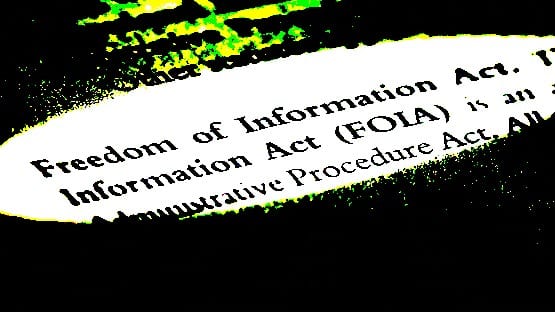
The county attorney in Augusta County, James Benkahla, acknowledged Wednesday night that the county is unlikely to prevail in its appeal of an Augusta County Circuit Court order to turn over a copy of the recording of an illegally-held closed meeting dating back to last year.
Armed with that information, the Augusta County Board of Supervisors rejected a proposal to drop the planned appeal.
“We should not spend money on a possibility or I don’t know. And above all, we should not spend money on a ruling that only benefits the board and not the taxpayers. And this appeal only benefits the board,” said Scott Seaton, the Wayne District supervisor, who made a motion at Wednesday’s BOS meeting to cancel the appeal of the Jan. 11 court order.
In that court ruling, Judge Thomas J. Wilson IV ordered the county to turn over a copy of the recording of the board’s March 20, 2023, closed meeting, in which board members discussed the resignation of South River Supervisor Steven Morelli.
The ruling was handed down in responses to separate cases filed by AFP and Breaking Through Media challenging the county’s denial of Virginia Freedom of Information Act requests asking the county to turn over copies of the recording of the meeting.
In the AFP case, Wilson ruled that because Seaton had turned over copies of recordings that he had made of the board’s closed meetings to the county, they are now public records, and thus subject to discovery under FOIA.
Then in the Breaking Through Media case, the judge ruled that the board’s motion to go into closed session did not meet the requirements spelled out in the state’s FOIA law, citing a 2020 Virginia Supreme Court decision in Cole v. Smyth County Board of Supervisors, which held that a “general reference to … the subject matter of the closed meeting shall not be sufficient,” and that “this prohibition against ‘general reference[s]’ is an implicit requirement that a motion effectively identify the subject matter to be discussed in the closed session.”
“(F)or the personnel exemption for the closed session, the County simply listed one of the subject matters as ‘Board of Supervisors.’ That statement is too cryptic, is merely a general reference to the subject matter, and does not contain the particularity I believe the statute requires,” Wilson wrote in his ruling.
Seaton, addressing the court ruling, and the Jan. 24 motion of the board to authorize the filing of an appeal, noted the recency of the Virginia Supreme Court precedent, and the observation of legal experts that “overruling precedents is a rare and significant event in any Supreme Court and reflects a change in the court’s interpretation of its Constitution or a change in law.”
He then asked Benkahla: “Has the FOIA law changed, or has the Virginia Constitution changed, since the Cole vs. Smyth case of 2020 that would precipitate overruling Cole vs. Smyth?”
Benkahla’s response: “It’s probably changed, but I don’t know if it will overrule the Cole case.”
In fact, neither the Virginia Freedom of Information Act nor the Virginia Constitution has changed since the 2020 Virginia Supreme Court ruling; Benkahla should know that.
Seaton then made a motion to cancel the appeal, which failed to get a second, but Board Chair Jeffrey Slaven called for a vote anyway.
It failed by a 5-1 margin, with only Seaton voting in favor – Middle River Supervisor Gerald Garber was absent, which is why it wasn’t another 6-1 margin from this board, which has two voices, one spoken by the six, the other spoken by Seaton.
The buttons pushed by the six represented the sum total of what they had to say at Wednesday’s meeting on the appeal matter, which we learned last month has cost county taxpayers, to date, $5,976.
On that point: we learned from Seaton Wednesday night that the $5,976 total is only for work done by the outside attorney retained by the county to handle the FOIA cases, Rosalie Pemberton Fessier, through Sept. 24, nearly five months ago now.
“The county attorney and assistant county attorney combined are paid over a quarter million dollars besides their benefits. Why are we paying for outside counsel for a simple FOIA case to defend a closed meeting that was ruled illegal by a circuit court judge?” Seaton said.










